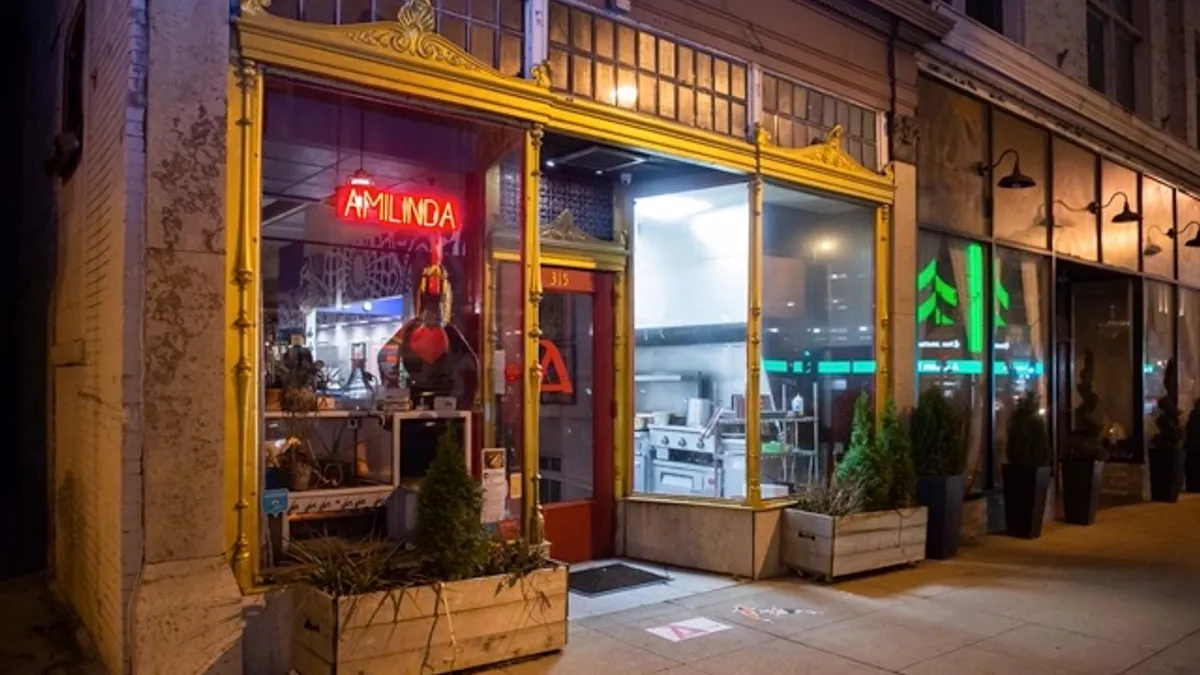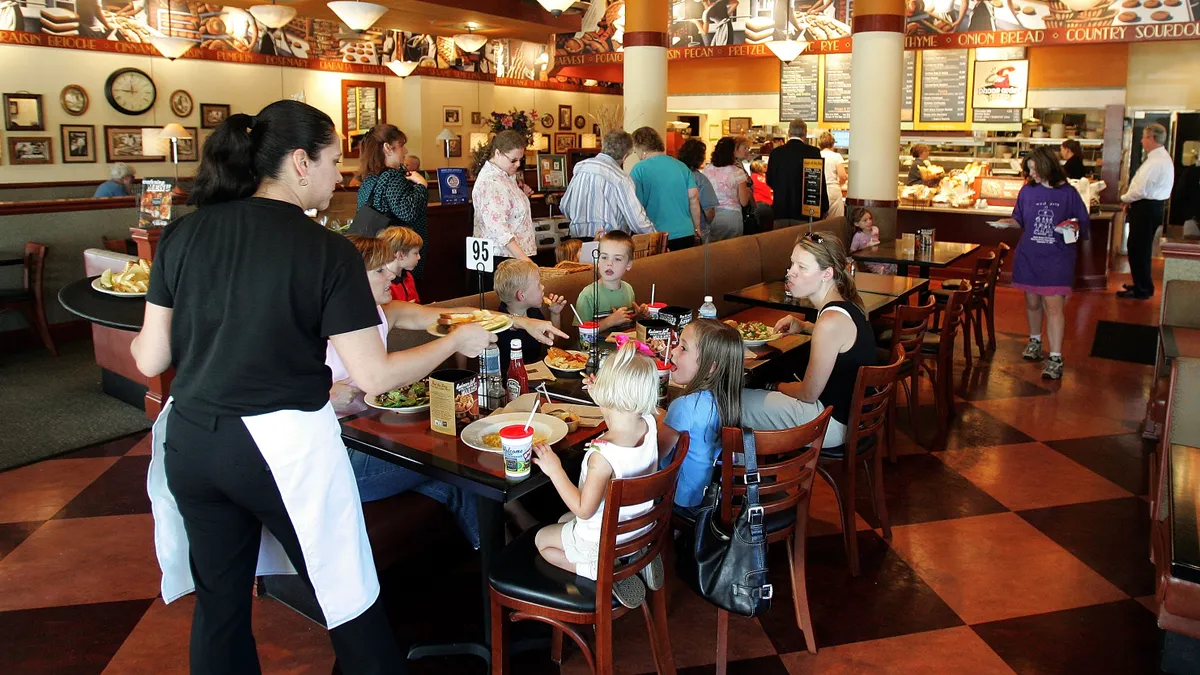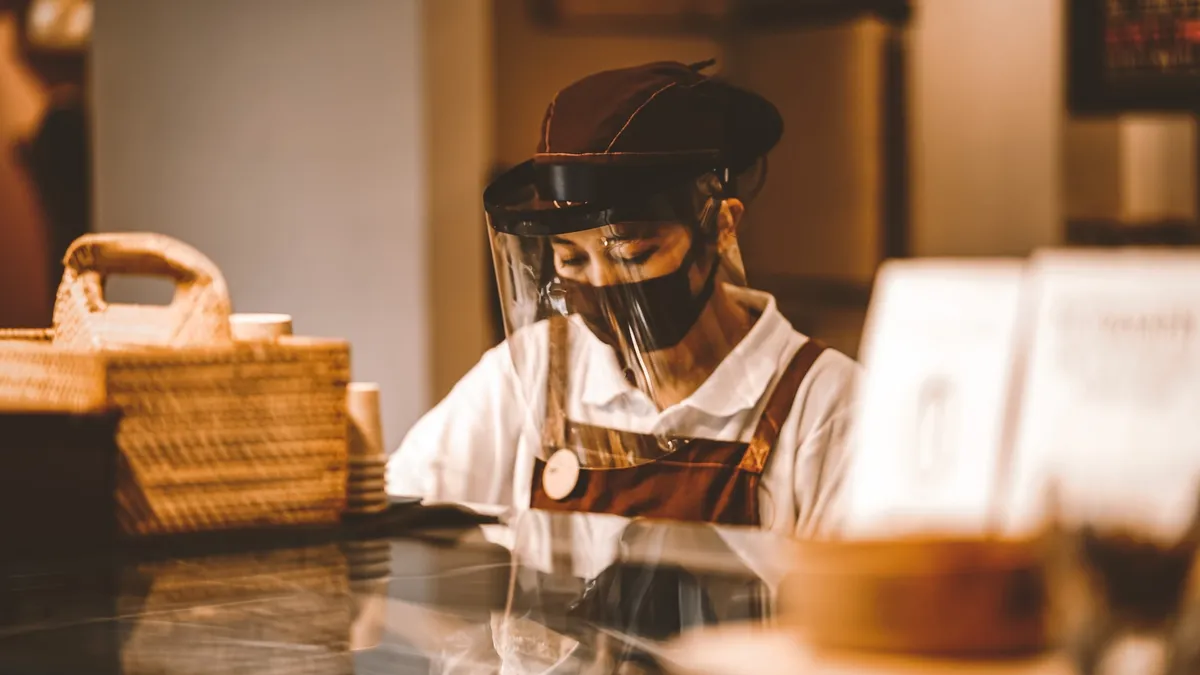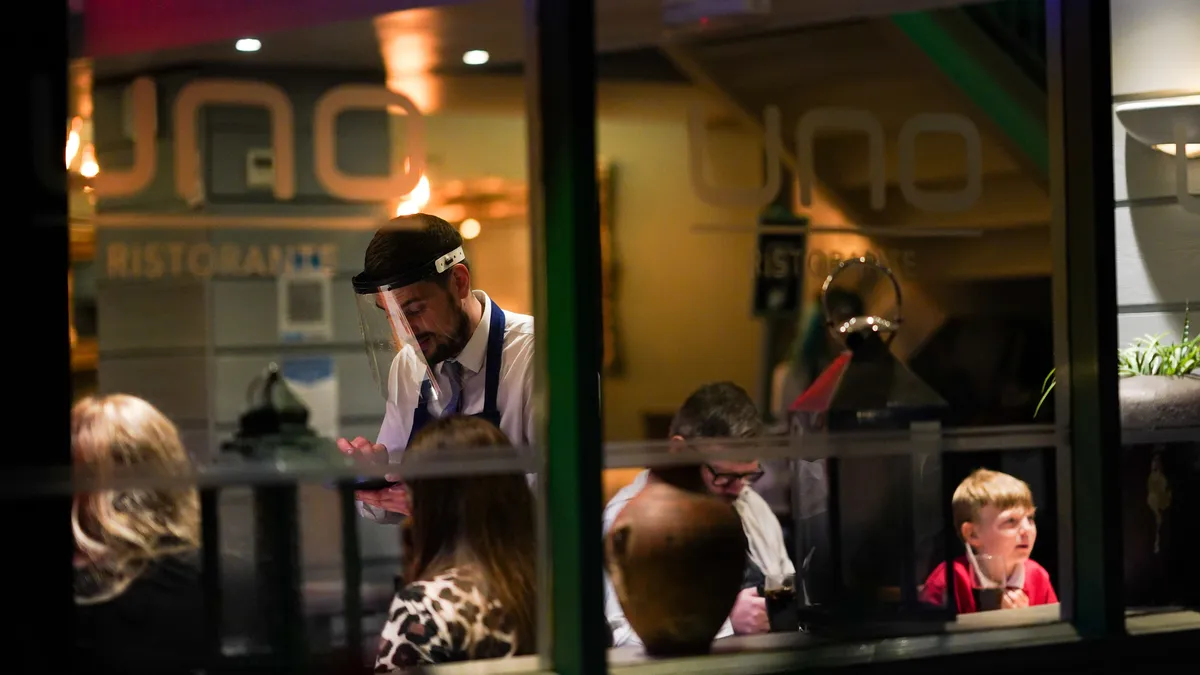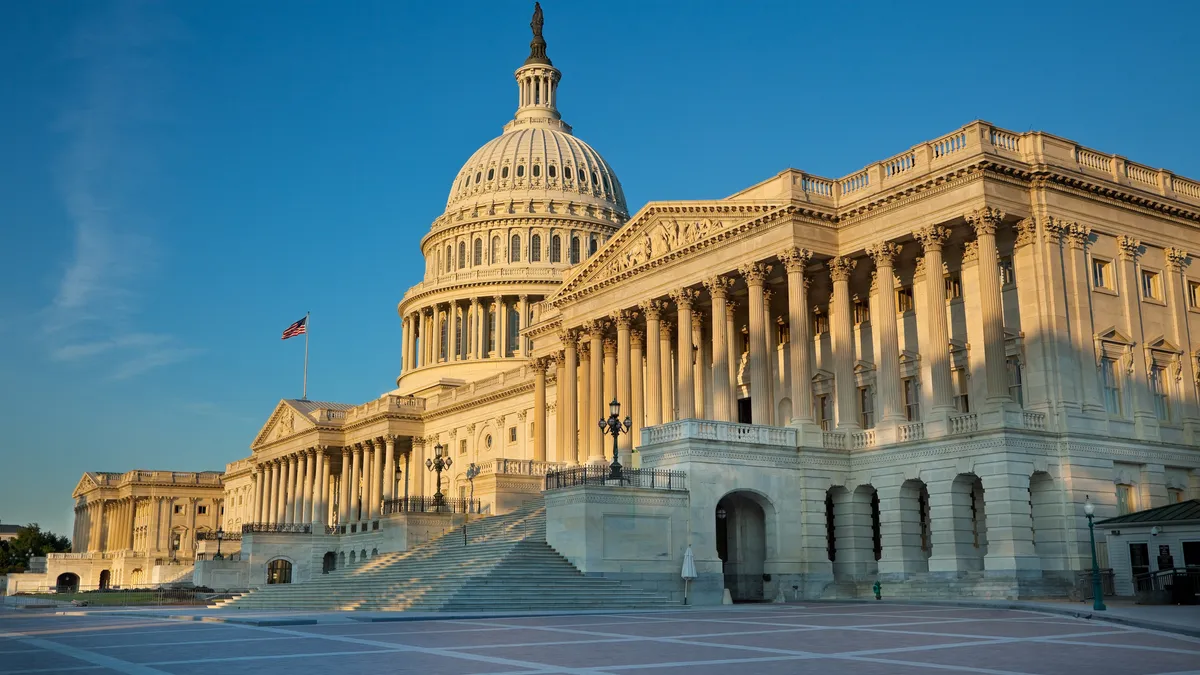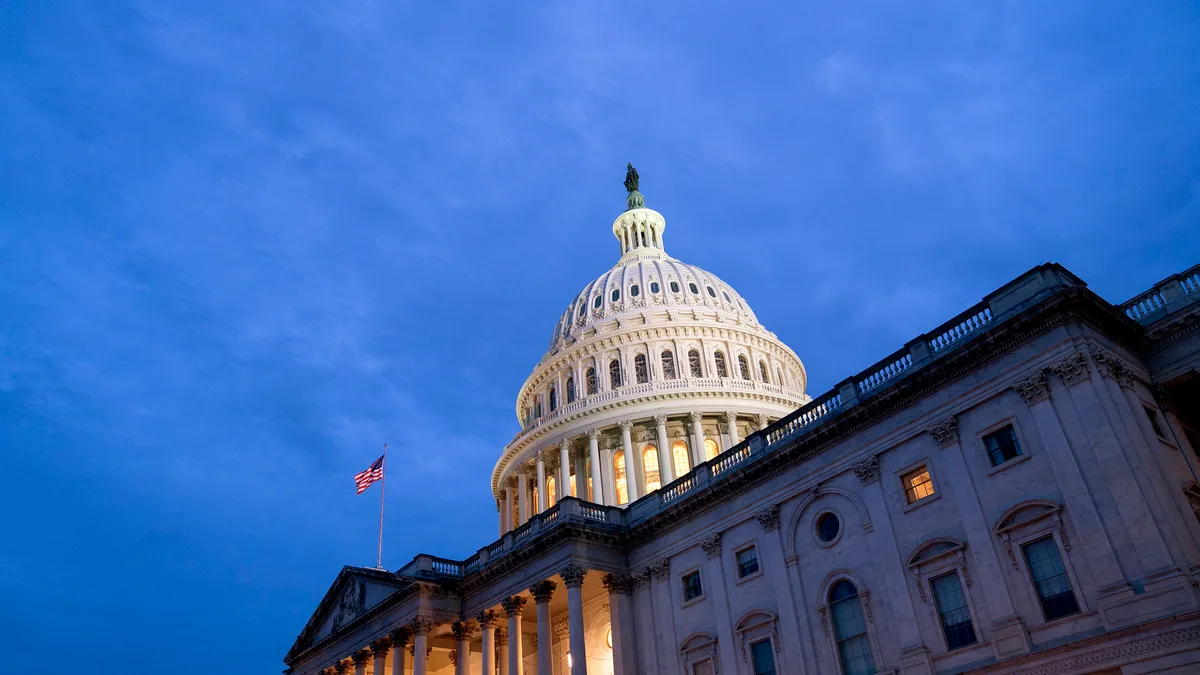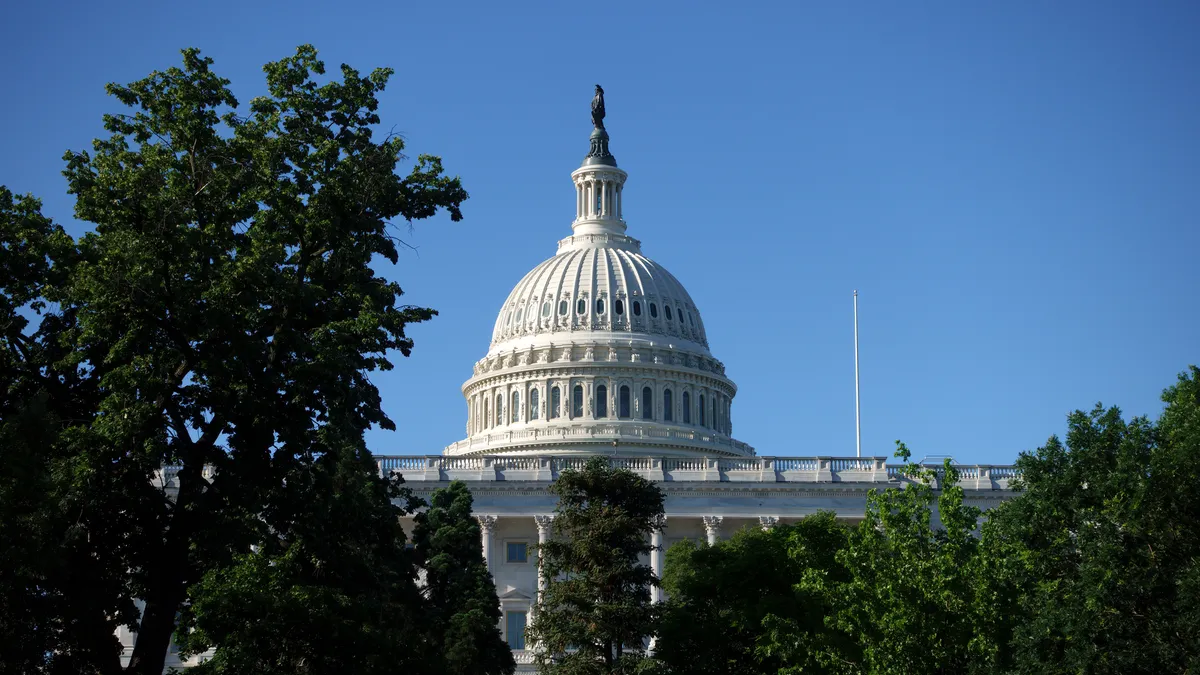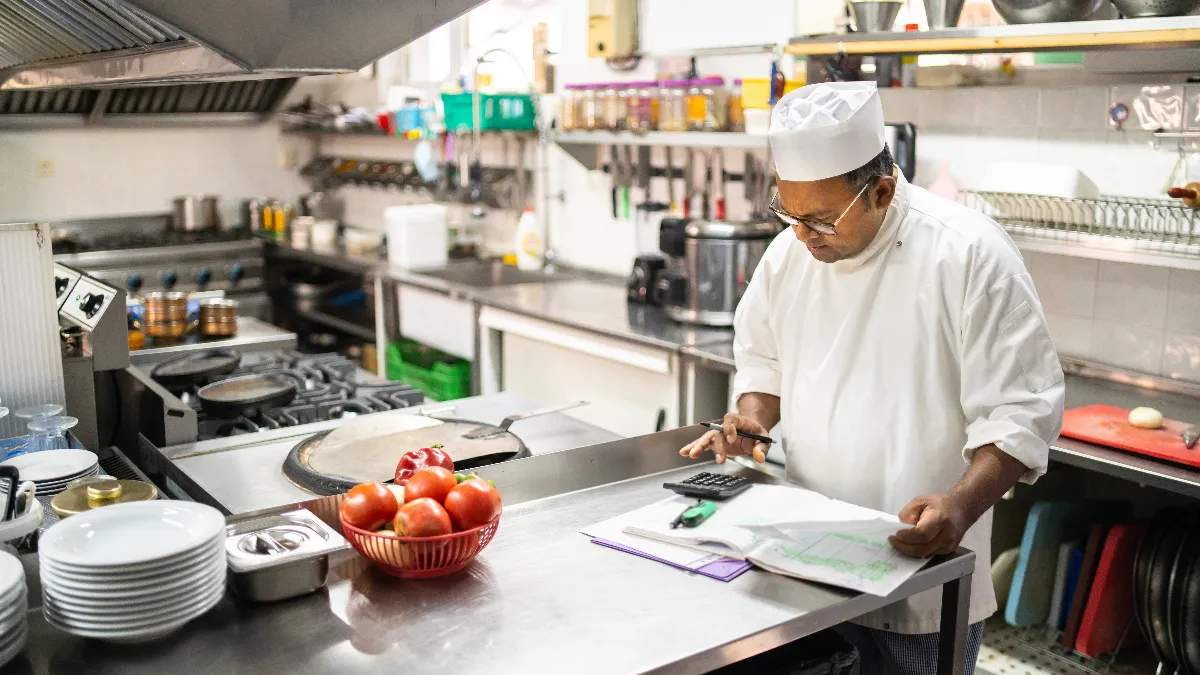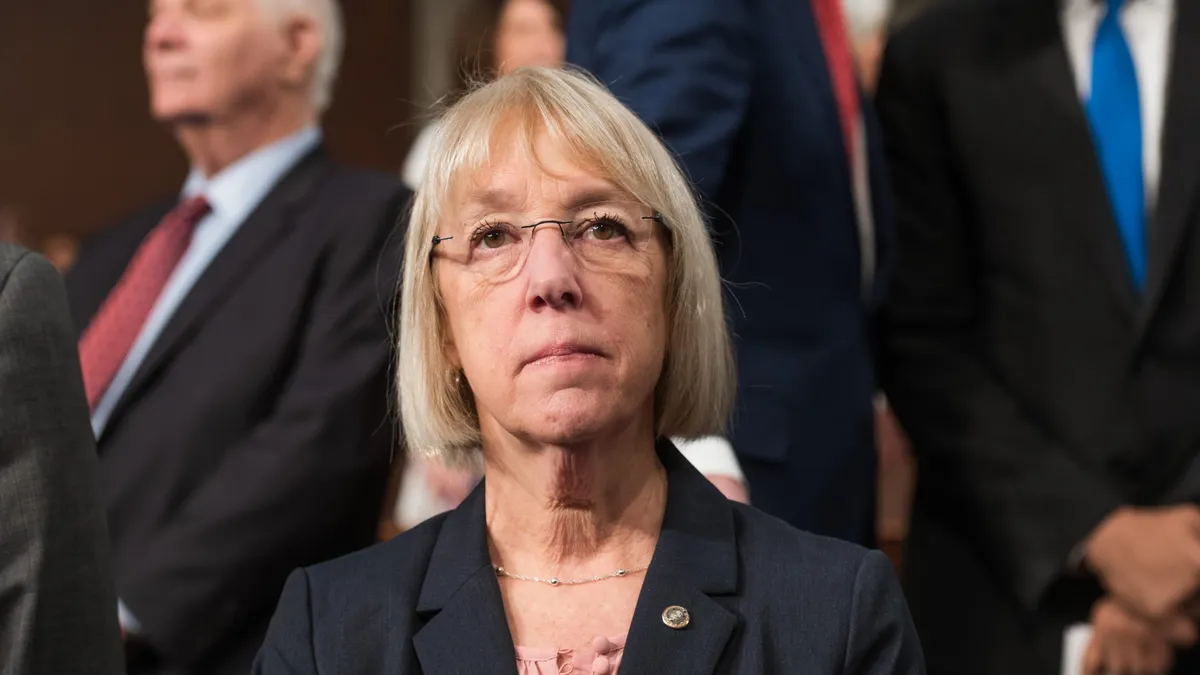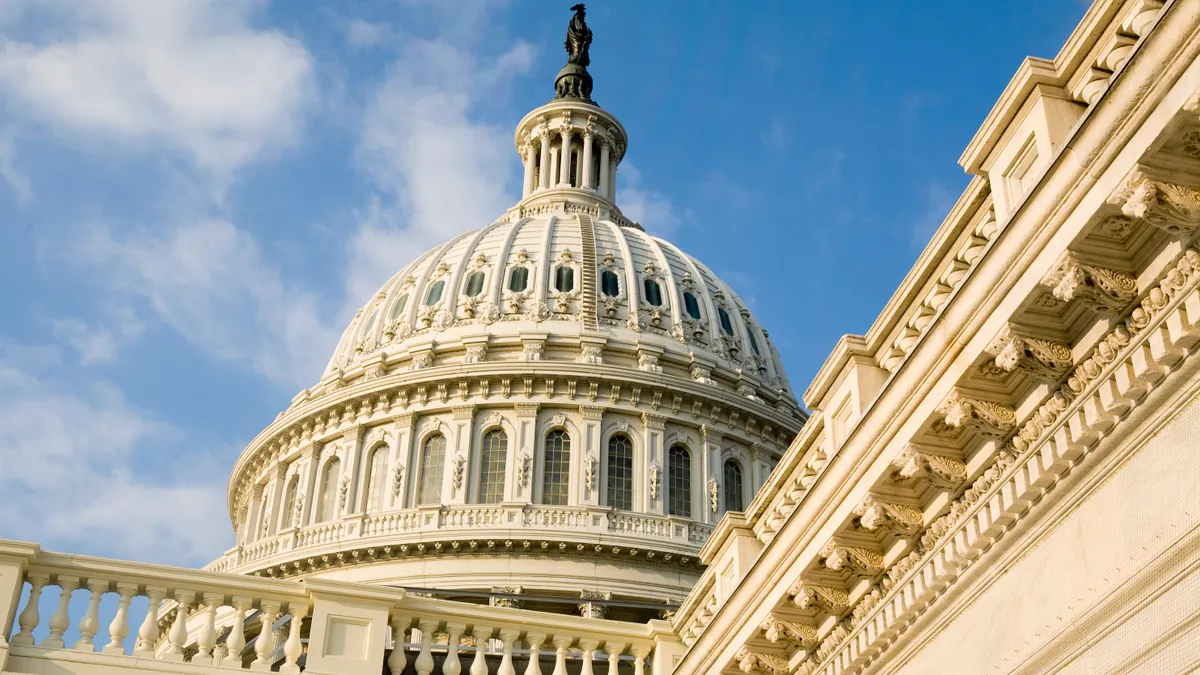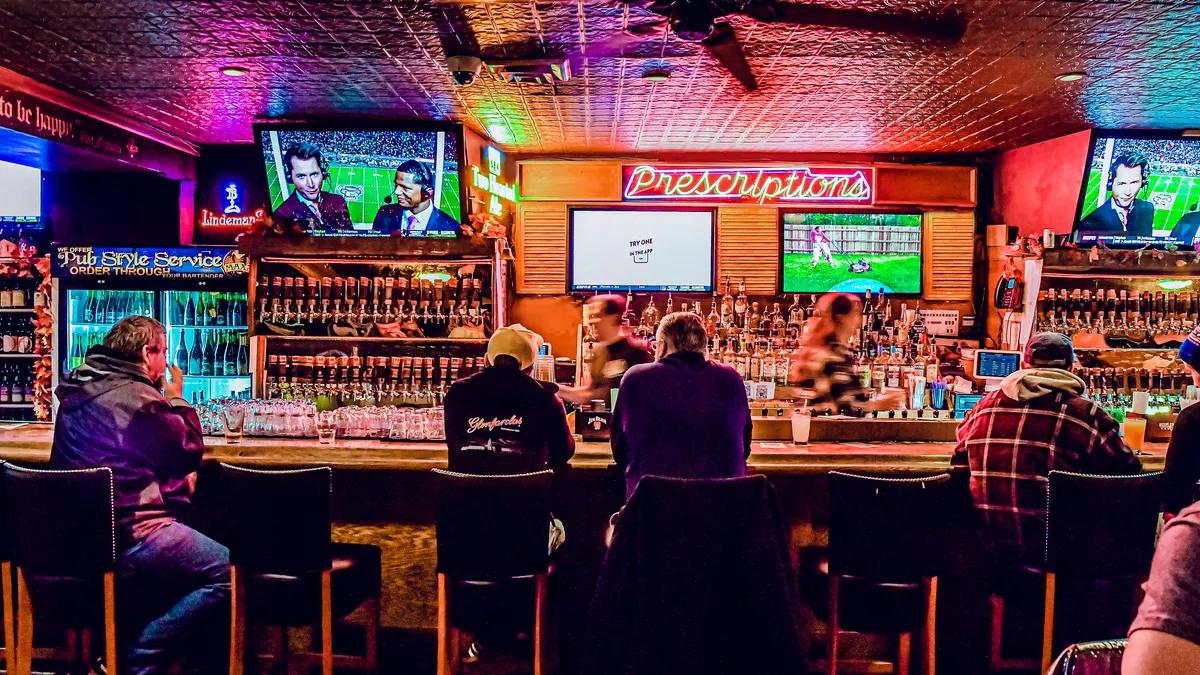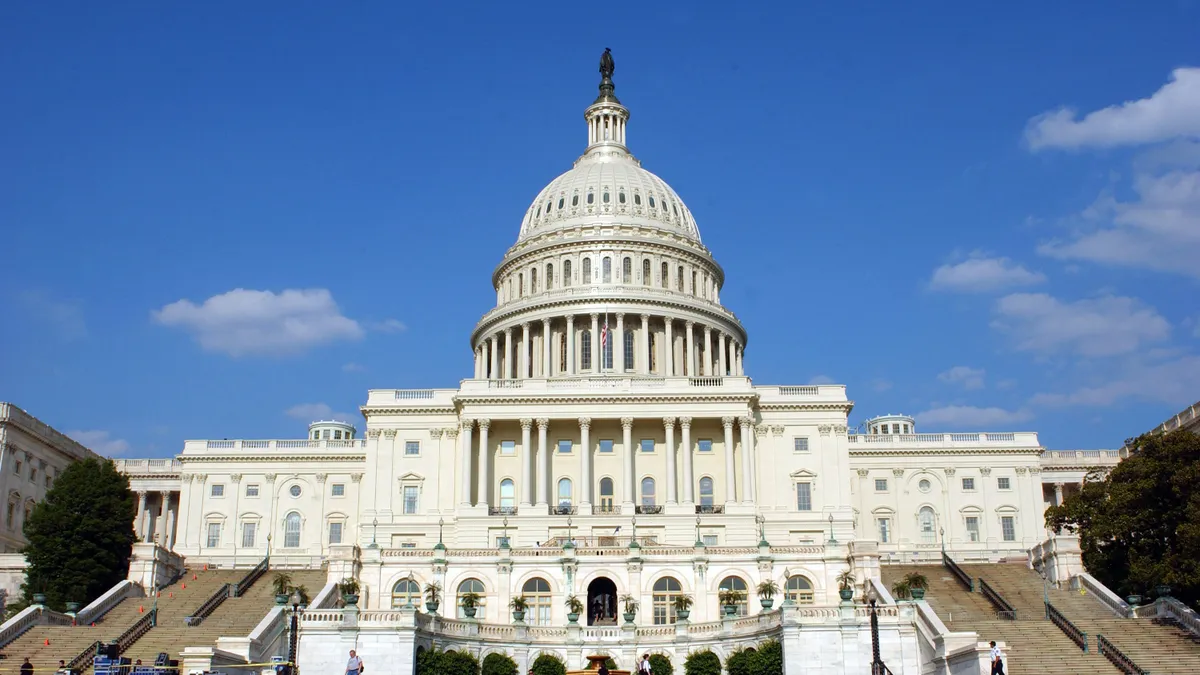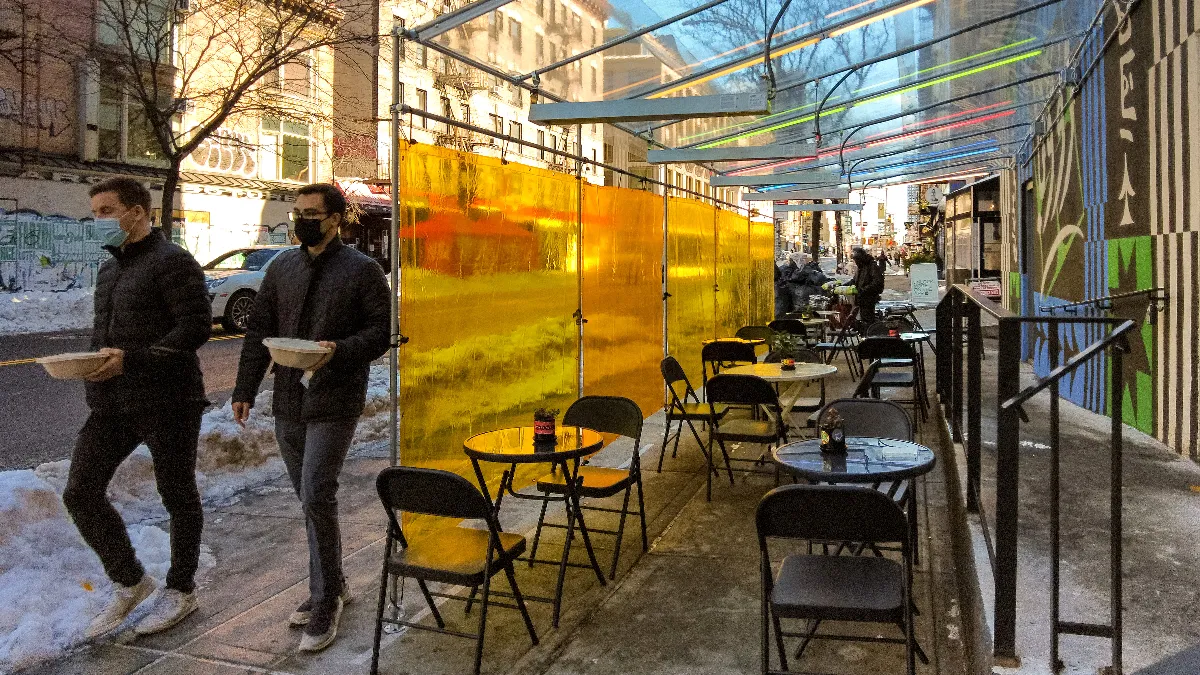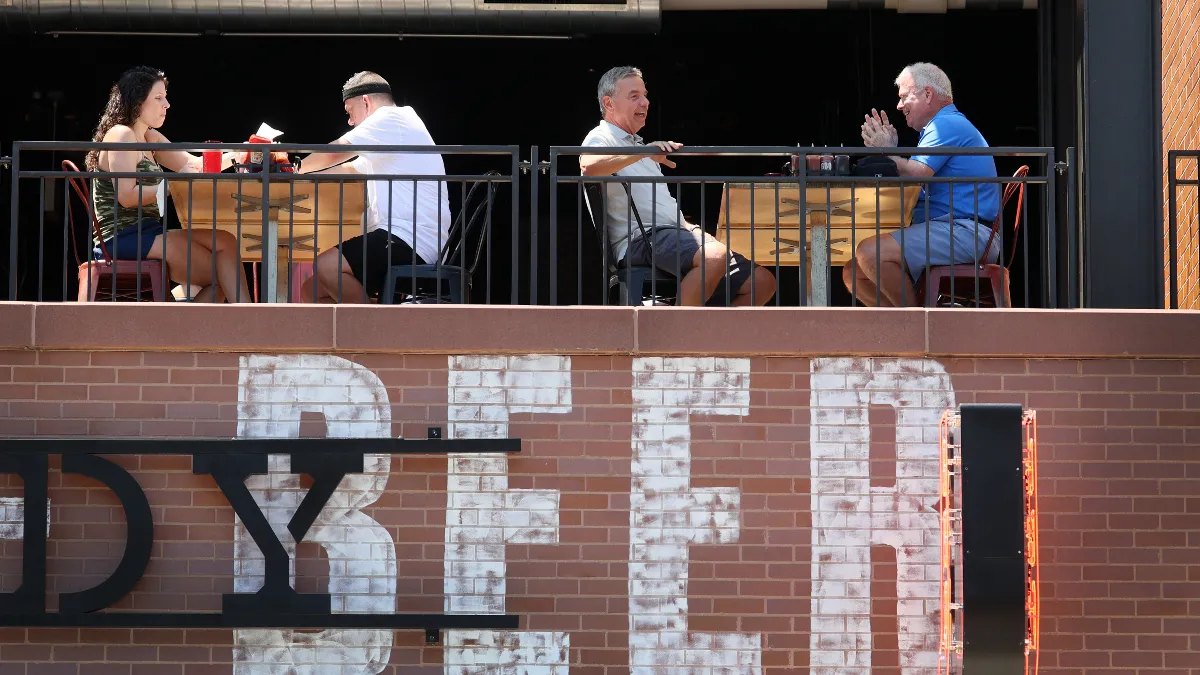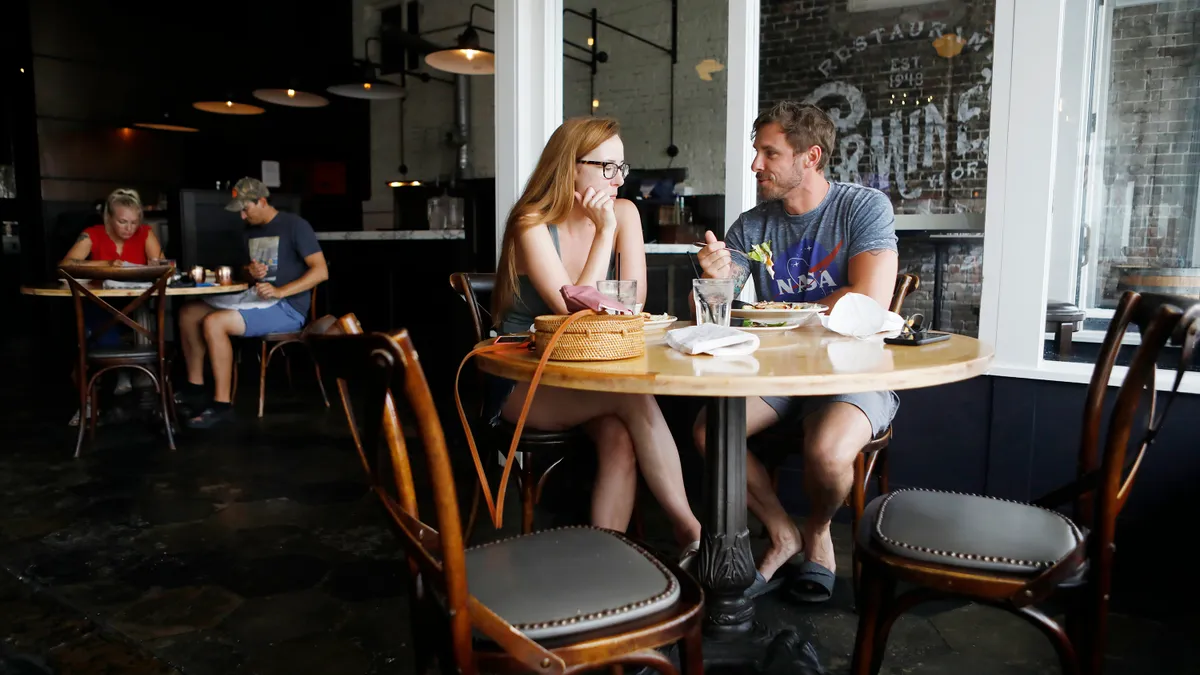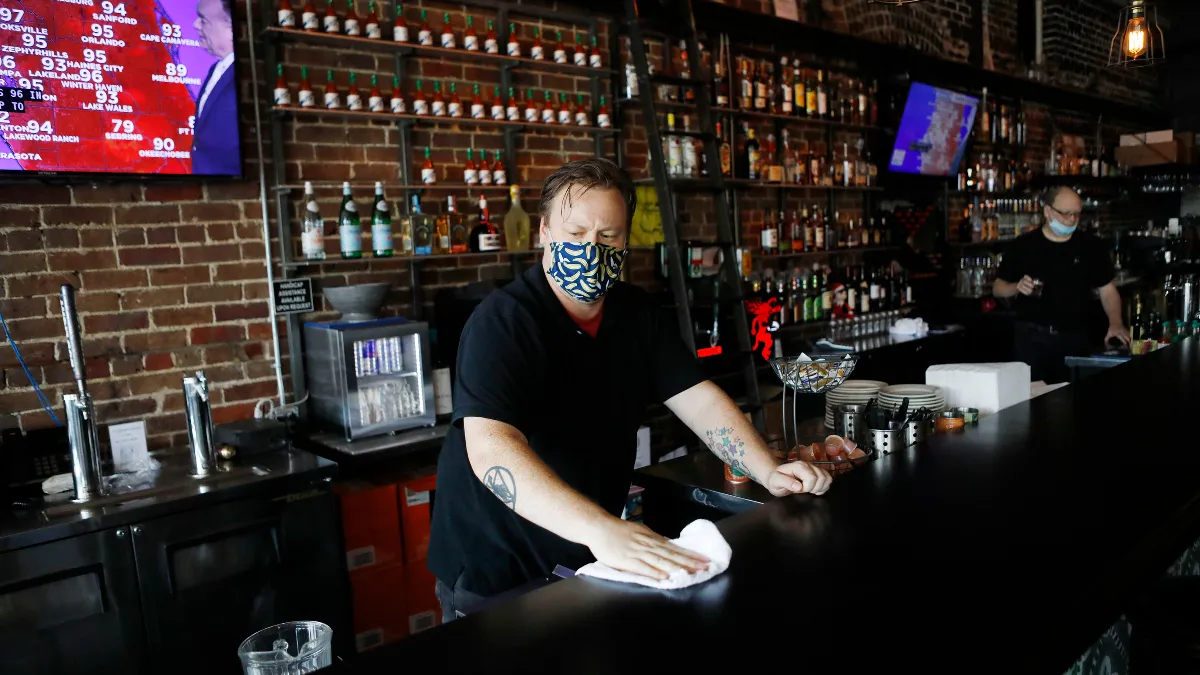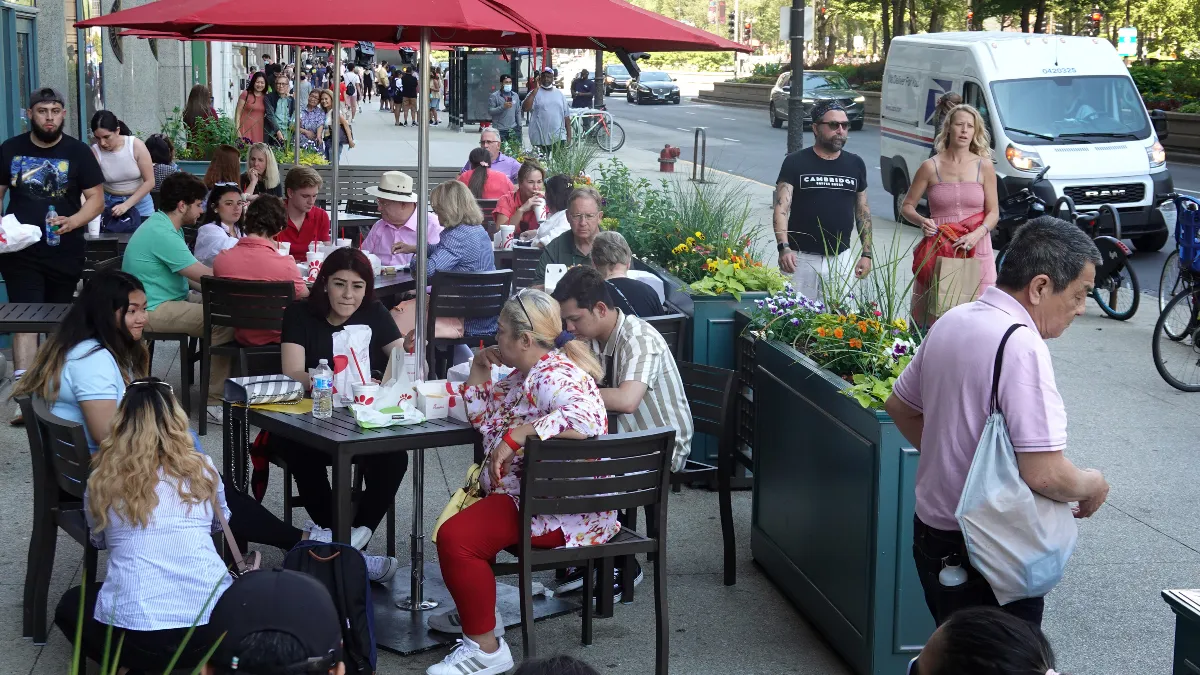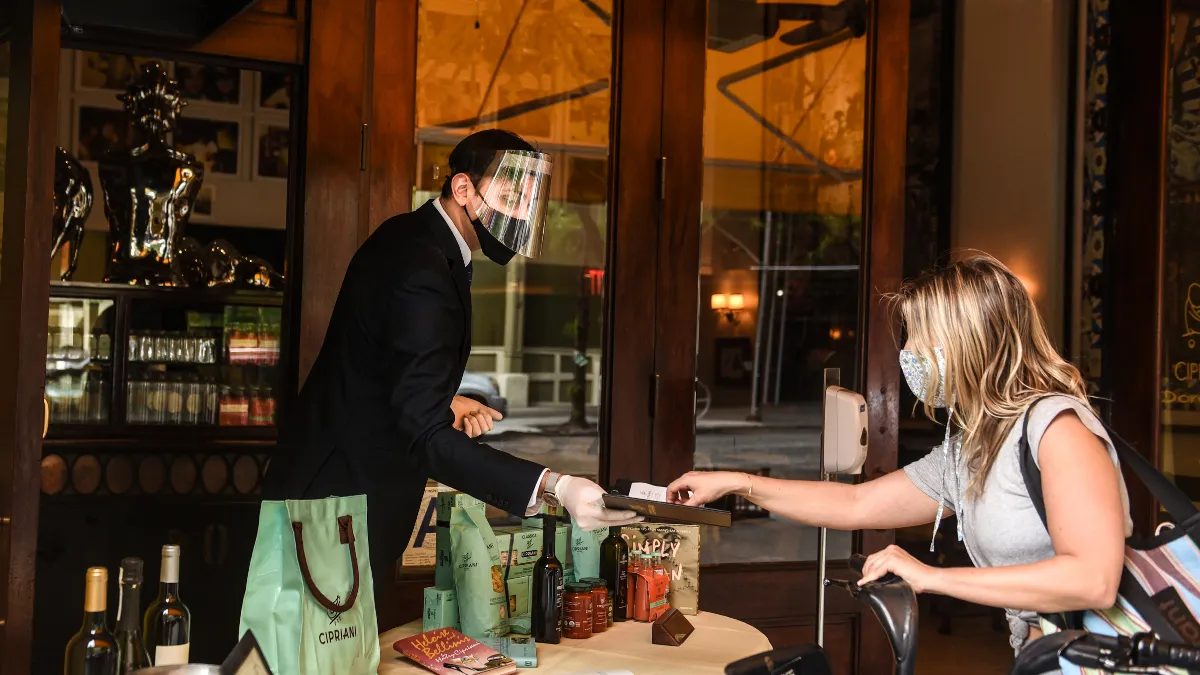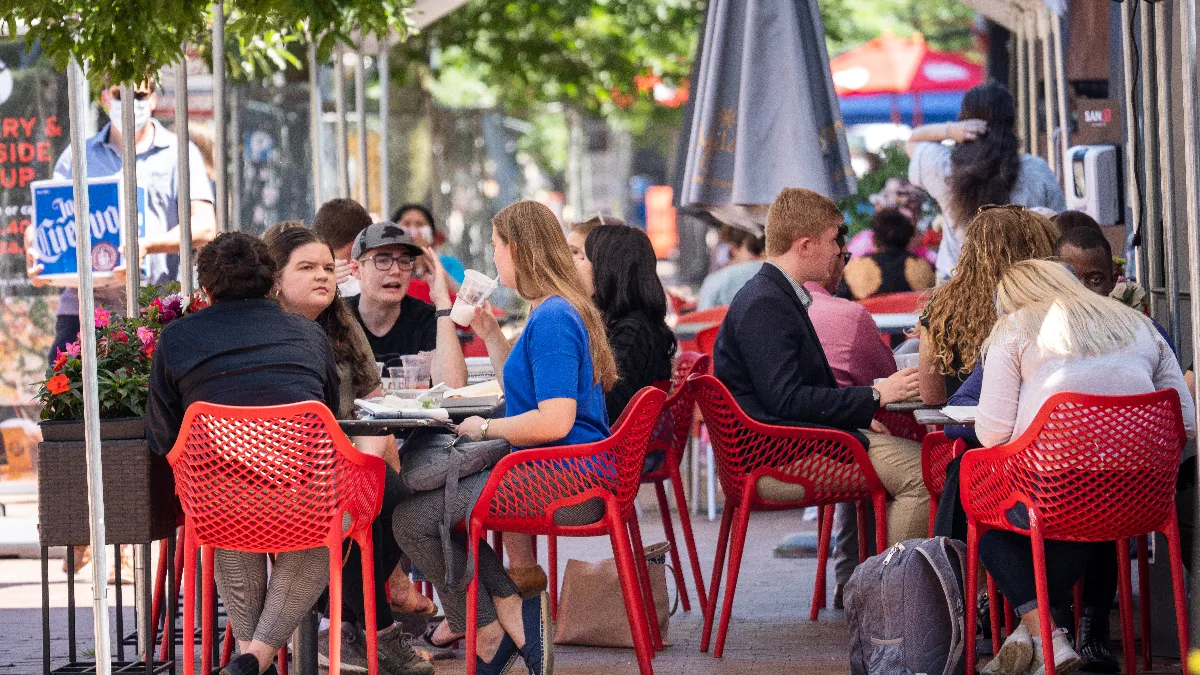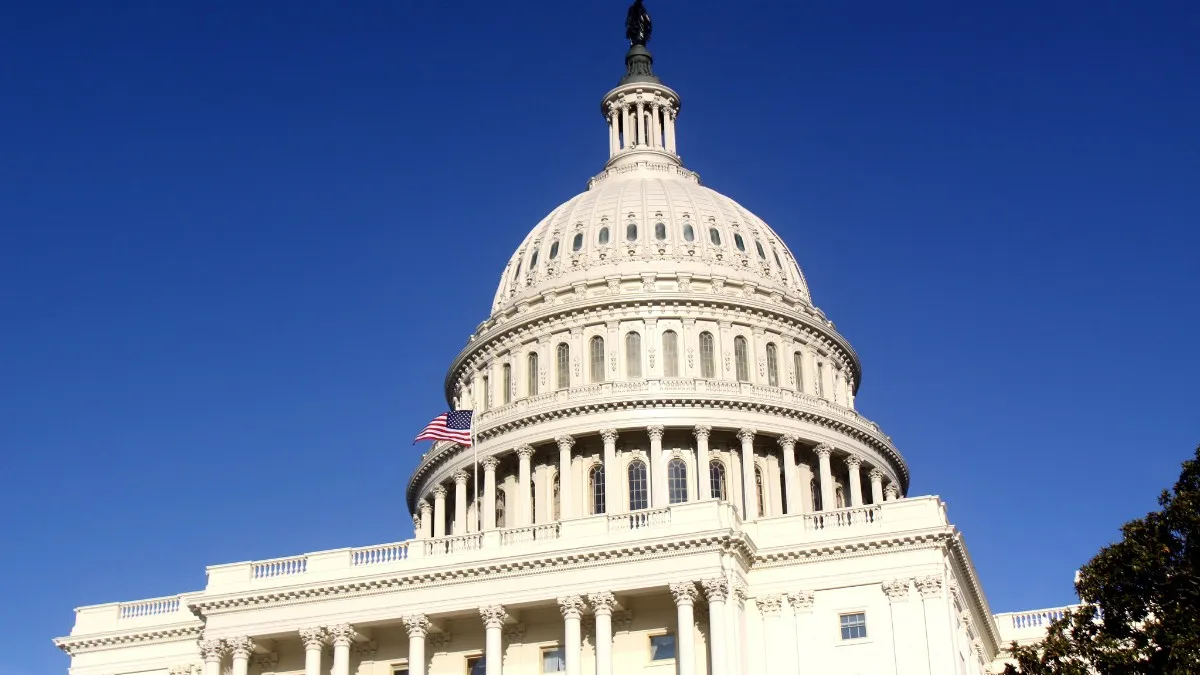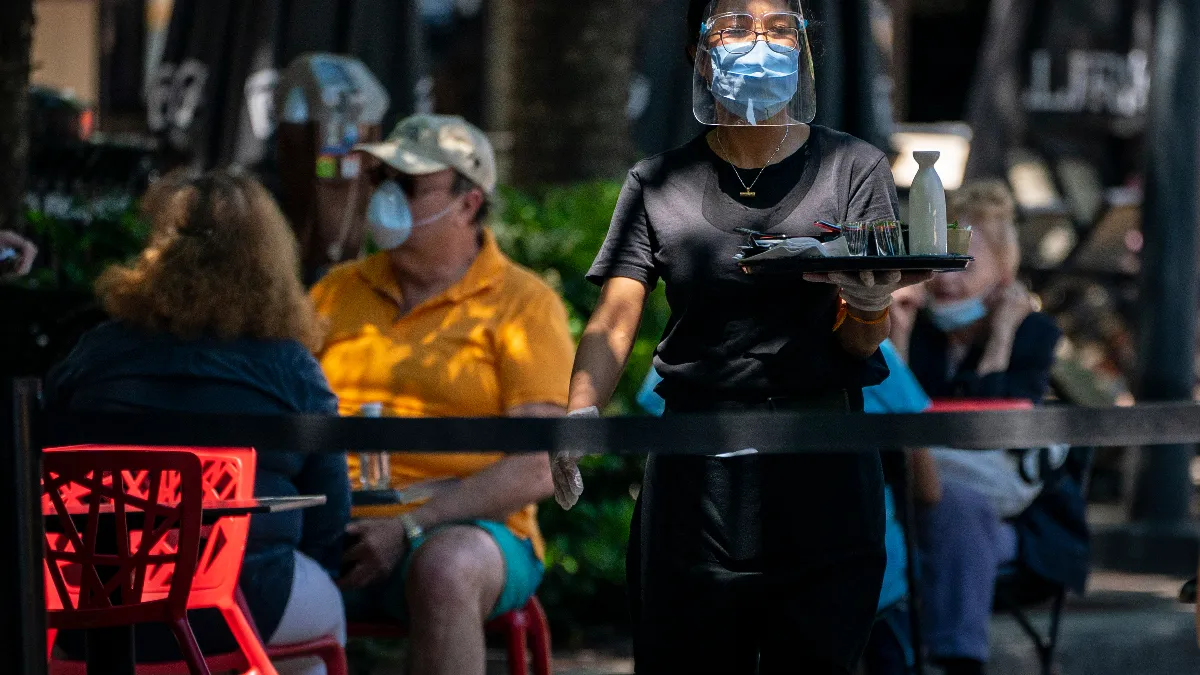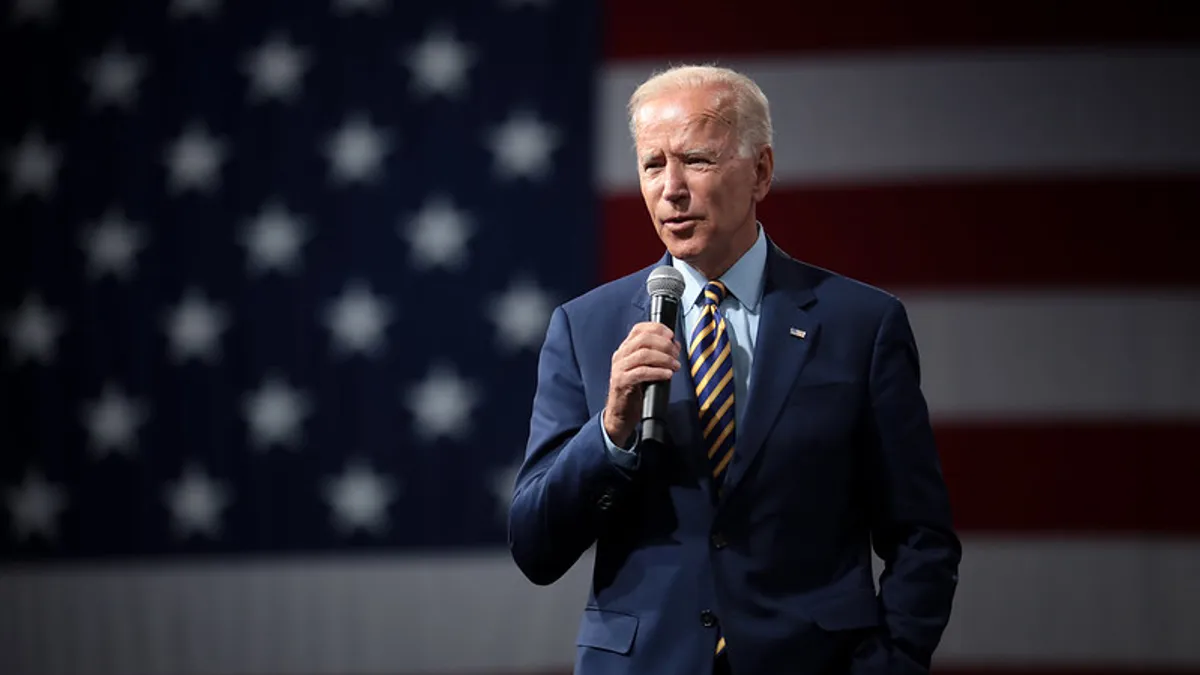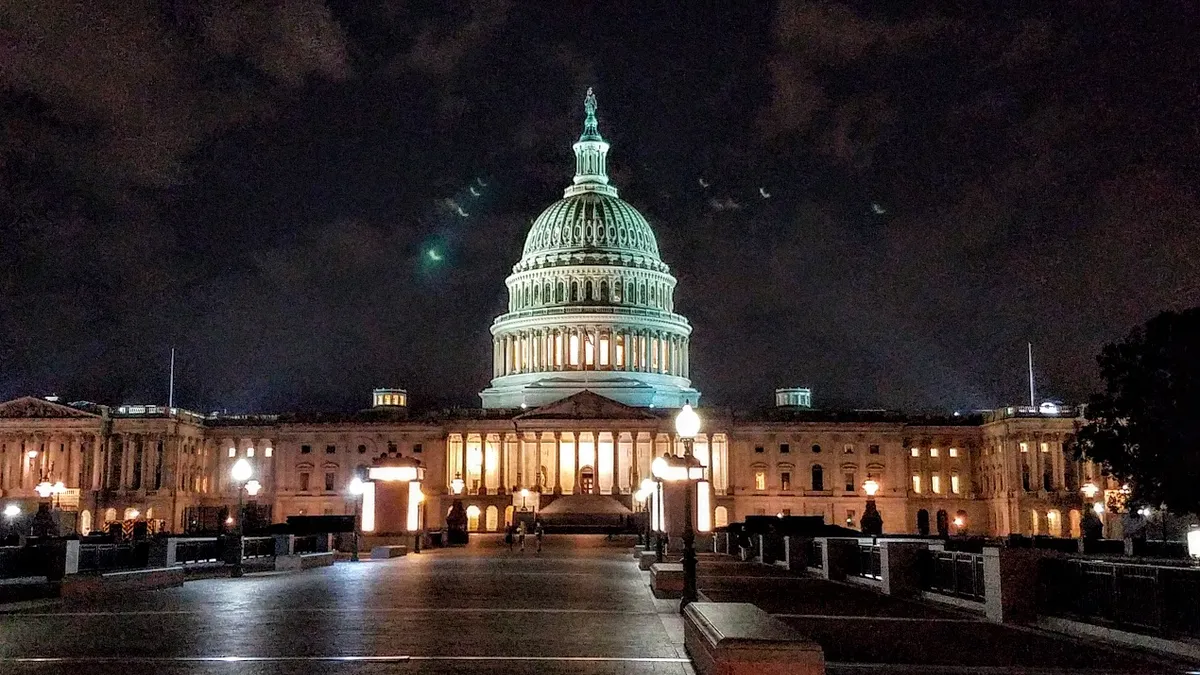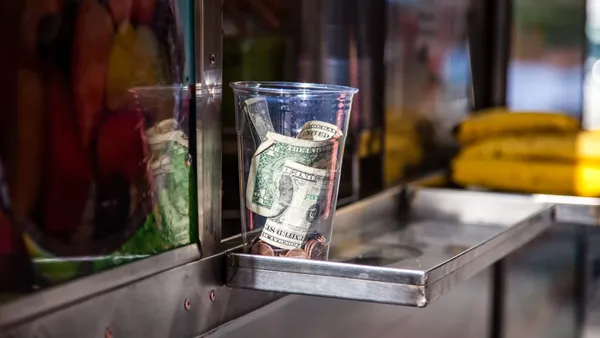This article is the first in a three-part series focusing on the impact the lack of additional grants from Restaurant Revitalization Fund has had on the restaurant industry, including an overview of RRF’s fallout by the numbers to reactions from across the industry to the Senate’s inability to pass a refill bill.
With to-go containers scattered on tables and empty seats in the dining room, Greg Leon, chef and owner of Amilinda in Milwaukee, would look around and think his restaurant wouldn’t survive. During the height of the pandemic, this crossed his mind at least once a week.
“It was soul crushing to come into a restaurant that once had been vibrant and full of life and energy and to come in and [see] it just be dead,” he said.
May 2021, however, brought hope.
Applications for the Restaurant Revitalization Fund, a federal grant program created to revive the battered industry with $28.6 billion, opened up. The fund promised a three-week priority period for eligible minority-owned businesses, and as a Latino and LGBT business owner, Leon quickly filled out the paperwork.
“So we had gotten a letter from [the Small Business Administration], maybe two weeks later saying you've been awarded $285,000. It will be deposited in your account within the next week,” Leon said.
He started thinking about all the ways he could use this money. He wanted to give all of his employees a raise. He’d pay off debt. There were going to be new tables and chairs, and he’d fix the things in his restaurant that were worn down. “For a week and a half, you're in that mental state of, ‘Oh my God, life is amazing.’”
But the day the money was supposed to be deposited into his account, nothing was there.
Leon called the SBA. A representative told him it was just a “glitch in the system” and that he would receive his money in a few days. In reality, the glitch was a delay. A group of White restaurant owners had sued the SBA, alleging the priority period was discriminatory and therefore unconstitutional.
Soon after his conversation with the SBA, Leon opened an email from the agency. “We regret to inform you…,” it began. The $285,000 promised to Amilinda was gone.
“To receive an email saying, 'Sorry, your grant has been rescinded because of this lawsuit' … it was a huge slap in the face," Leon said. "Because you know, like, literally I just spoke to you two days ago, you told me there was no problem. Now you're telling me I'm not getting this.”
The nearly 3,000 restaurants that had their grants revoked in the wake of the lawsuits were placed at the end of the RRF’s queue, but in less than three weeks, the program ran out of money. A year later, Leon has stopped waiting for additional funds.
It could have been worse for Leon. But he was smart. He hadn’t used any of the promised grant money before it was rescinded, working only with what was actually in his bank account. Amilinda didn’t expand as Leon and his team had planned. It didn’t open for more hours like they wanted. There was no additional staff as hoped.
“So that’s where we are,” Leon said. “We did survive.”

From cooking at home to finding a home to cook
Amilinda, a combination of Leon’s father’s name Amilcar and his mother Linda, pays homage to Leon’s childhood. He grew up in Venezuela, with the sounds of music and the sizzle of the barbecue permeating his home. On Saturdays, he and his brothers would wake up, eat breakfast and head to the meat market with their parents. They’d also visit the grocery store and the fish market. Then his dad would start cooking as his large family came over to spend the day together. Sunday was no different.
Leon recounts a story from when he was 17. He had asked his mom what they were doing this weekend, and she responded that they were having a barbecue.
“I was like ‘Ah again. We do this every weekend. It's so boring,’” he recalls. “And I remember my mom looking at me. She's like, ‘Your dad works really hard during the week. This is what he likes to do. This is what we're going to do.’”
Looking back, he’s thankful to have grown up in that home — a house then aptly named Amilinda as well — surrounded by family and friends. “They were the ones that, in their own way, showed me that you can use food to make the world a better place and to bring some joy to other people,” Leon said.
By 1989, Leon had moved to the United States. Five years later, he was in San Francisco, working in restaurants with “zero experience.” At first he wanted to be a pastry chef, but it “wasn’t my jam.” Then he decided to try creating savory dishes, experimenting first with French cuisine. But in 1997, he got an opportunity to travel to Spain, where learned the complexities of Spanish and Portuguese cooking.
“There’s just another level of flavors and how they relate to food and sharing their cooking that really, really spoke to my soul,” he said.
Leon returned to San Francisco but by 2012, he decided he would never be able to afford to own a restaurant there. So he packed up his belongings, grabbed his dog and they traveled across the U.S., visiting friends and looking for a place with a nice food scene.
A friend from Milwaukee invited him to visit, telling him he should open a restaurant in the Midwestern city. “It was not on my radar at all. … I said, ‘You're crazy, I don't even know where it is,’” Leon recalls. “And I came to visit and fell in love with the city. I was here for three days before I decided to stay.”
Amilinda began as a pop-up restaurant in 2013, which lasted until 2015 when he moved into his current 52-seat space in downtown Milwaukee. Over the years, his team grew to 12 employees and by early 2020, they had plans to expand into lunch service.
Then the rumblings of something called the coronavirus started.
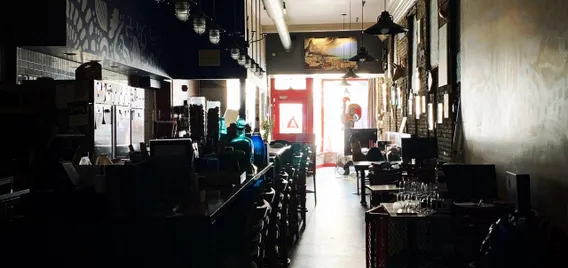
A constant fight to keep the lights on
Leon admits, “2020 is a little fuzzy.”
In mid-March, cases were creeping into Milwaukee. Around Friday, March 13, questions started racing through his mind. “What are we going to do? What’s going to happen? I think we’re going to get shut down,” he said.
By Sunday, Leon and his now former business partner decided to close because customers were getting scared to go out to eat and no one knew how severe the virus could be. They decided to lay off all of their front-of-house workers so staff could collect unemployment.
Leon thought these cuts would be temporary, hoping he could bring everyone back by the summer. “We hung onto our kitchen crew until June, but it just became obvious that the restaurant was going to continue to hemorrhage money and that we had to get rid of everybody,” he said.
“To receive an email saying, 'Sorry, your grant has been rescinded because of this lawsuit' … it was a huge slap in the face. Because you know, like, literally I just spoke to you two days ago, you told me there was no problem. Now you're telling me I'm not getting this.”

Greg Leon
Chef and owner, Amilinda
His 12-person crew was now down to five, which included Leon’s father and his father’s wife. “My dad and his wife washed dishes,” Leon said.
The first couple of months, Amilinda’s to-go business was bumping. People ordered frequently to try to help the restaurant survive, but as the pandemic dragged on, the numbers dropped. Leon cut the restaurant’s hours from 5 to 10 p.m. to 5 to 8 p.m., Tuesday through Saturday. Some nights, he was the only one cooking.
But Amilinda soon started cooking for different meal programs around the city, as well as World Central Kitchen, to help people in need. Leon also created a program with local pastor Karen Hagen called Hungry Hearts. The nonprofit, which had a roster of 11 restaurants, including Amilinda, gave free meals to community members in need. Every Saturday, three restaurants would provide Hungry Hearts with 100 meals in to-go containers, and in turn, the program would pay each of them $1,000.
Hungry Hearts, which was funded by donations, lasted until October 2021, helping participating restaurants take home a few thousand dollars a month. “They were able to keep their lights on, maybe keep some of their staff and stay afloat during the pandemic,” said Leon.
Amilinda was also hired to make and deliver meals to local hospitals and fire departments. And the restaurant was helped by generous landlords who told them to pay whatever they could afford and when the pandemic passed, they would figure it out. Amilinda received some small state grants as well, and landed about $30,000 through the Paycheck Protection Program.
“But there were a lot of days when it didn't seem like it was going to be feasible to keep the doors open,” Leon said, especially when his business partner and now ex-husband left in September 2020, leaving the finances in disarray.
He remembers often calling chef Caitlin Cullen crying and wondering how he was going to keep going. She'd give him a pep talk. “She’d be like, ‘You've got this. You don't want to shut the restaurant down. What are you going to do if you shut the restaurant down? Do you really want to go work for somebody else?’”
And his regulars would send notes: “Please stay open.” “Don't close.” “How can we help?” Several donated their stimulus checks to Amilinda. “So you know, that was what would get me out of a funk,” Leon said.
A ‘demoralizing’ blow to the industry
Today, a year after RRF officially ran out of money, there is no major financial savior in sight. Last Thursday, the Senate failed to pass a bill that would have replenished the fund with $40 billion.
Just three hours after the vote, Leon said he had already heard from dozens of restaurant owners that will now have to shut down. Thousands of people across the country will be unemployed, he said.
“For the industry as a whole, it’s a gigantic blow. There are a lot of restaurants that are worse off than us,” Leon said. He knows chefs who have mortgaged their houses to stay open and operators who have taken money out of their children’s college funds.
Amilinda is operating as if it’s never going to see its once-promised grant. “I haven’t put any eggs in this basket. While I was hopeful, I wasn’t counting on the money,” he said. Leon and his team will stay the course and delay opening extra days for “quite awhile now.”
“It’s very demoralizing that our elected officials don’t care. We are disposable to them. It’s demoralizing that what we do on a daily basis isn’t considered ‘enough’ to save."

Greg Leon
Chef and owner, Amilinda
And though the restaurant’s foot traffic numbers are back to pre-pandemic levels for now, Leon’s seen cancellations increase as virus cases rise. For those who see his bustling restaurant — and the news that Leon is now a James Beard-nominated chef — and wonder why Amilinda still needs money, he reminds them, “There's still a big chunk of debt that happened during the pandemic because we weren't bringing in enough money to pay a lot of bills.” Returning customers doesn’t equal recovery.
RRF’s early closure, and a lack of a refill, has also created inequity among restaurants who received grants and those who didn’t. “It's difficult competing with these restaurants who now have this huge war chest,” Leon said.
While Amilinda now has seven employees, the restaurant is barely at half of its pre-pandemic staffing levels. “How can we tell somebody to work for me, but all I can pay you right now is $15 bucks. And they're like, ‘Well, why would I want to come work for you when the restaurant down the street can pay me $20.’”
For Leon, all he wanted was for the government to even the playing field. Its inability to do so has left lingering anger. “It’s very demoralizing that our elected officials don’t care,” he said. “We are disposable to them. It’s demoralizing that what we do on a daily basis isn’t considered ‘enough’ to save.”



